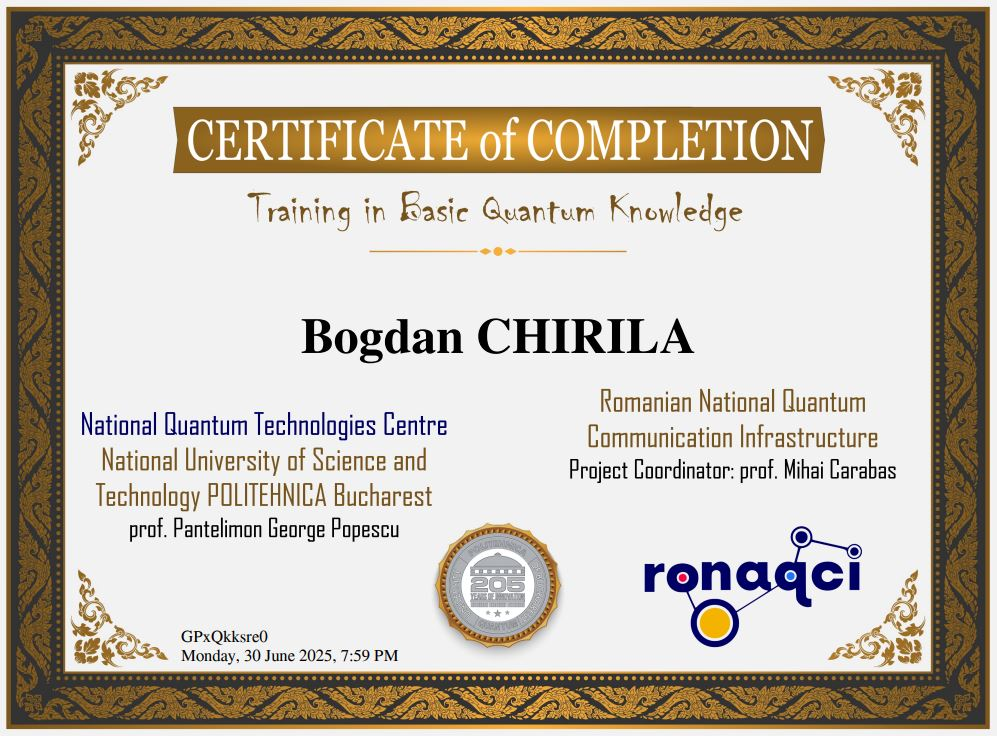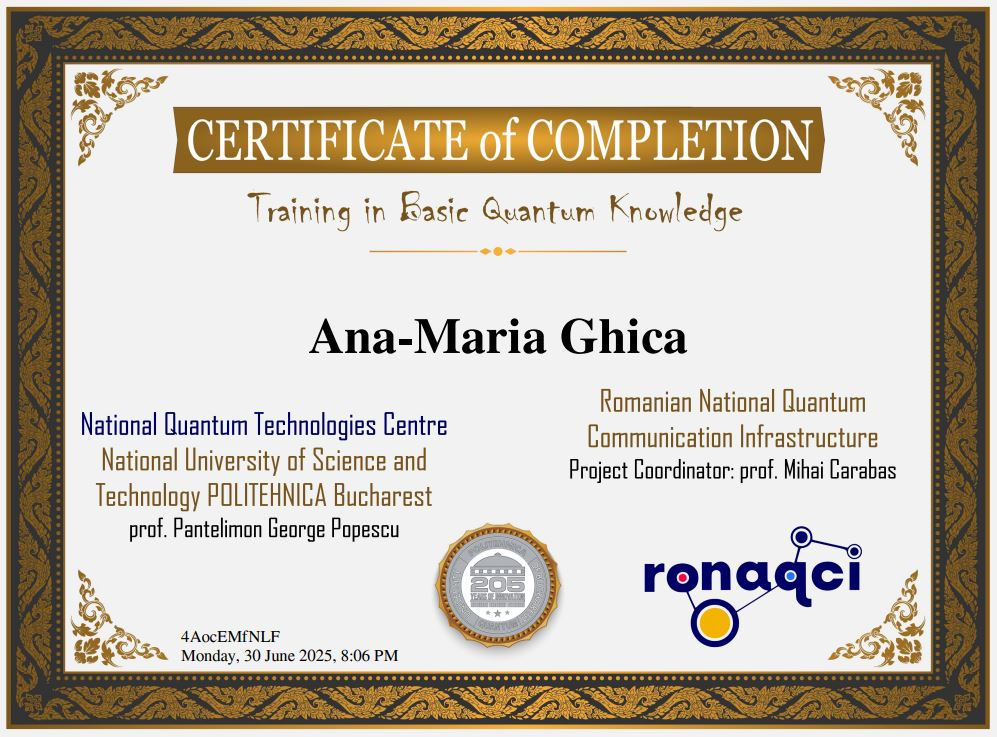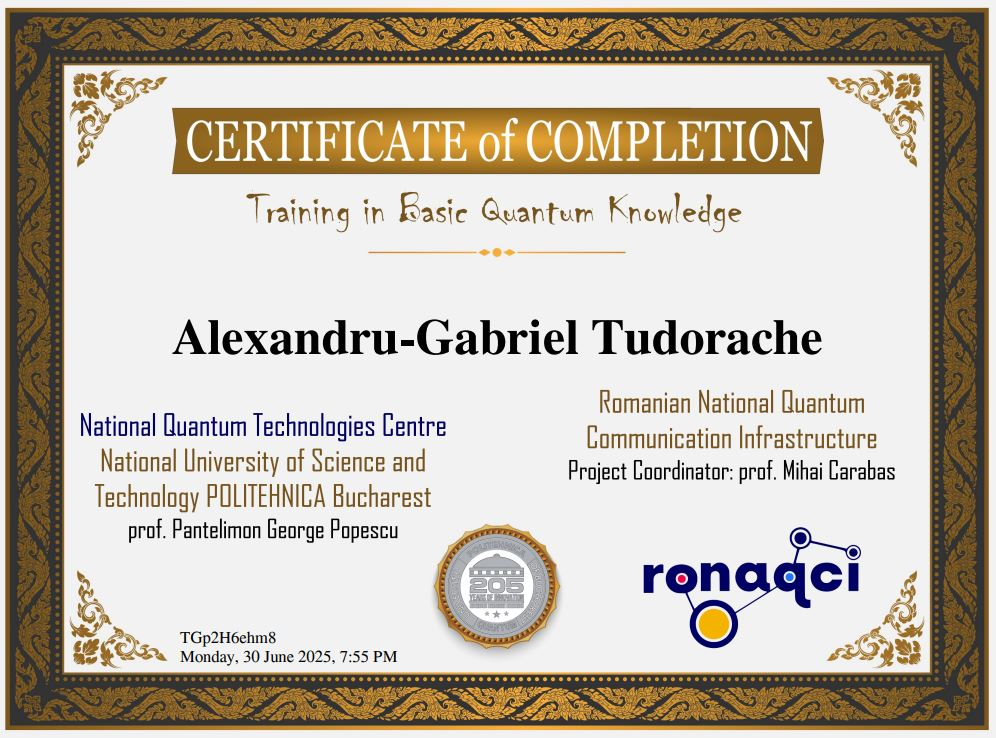
Certification process in RoNaQCI
Big picture
In order to obtain a Romanian certification in basic quantum knowledge, one needs to complete the following steps: first up, enroll into a training session at one of the approved Quantum HUBs; then, attend the training session (online or physically, depending on the decision of the management of the respective hub); at the end of the session, take an online test on the Training Moodle platform and obtain a Diploma of Participation, which contains a unique code that can be validated by the RoNaQCI consortium. With a Diploma of Participation, a user is already trained in basic quantum knowledge, so they are then ready to apply to obain a certification. The user can then enroll into a session for the certification test and take the test with no right to re-take if the score is below the pass threshold (in this case the user should reschedule a new training session). If the score is above the threshold, then the user will automatically get a Certificate in Basic Quantum Knowledge, also with a unique ID and timestamped. The process is described in the figure below.

Training in RoNaQCI
Training in numbers
1600+
Users trained
990+
Diplomas of Participation awarded
60
Total lessons
18
Total practice labs
130
Total training hours
42
Teachers
Infrastructure

- Phase 1: Question Generation This phase covers the steps from the student starting the quiz to a unique, randomized question appearing on their screen.
- Start Certification Quiz: The Student begins a quiz in Moodle. If a question is not a CodeRunner type, it is rendered directly.
- Identify CodeRunner Question: When a CodeRunner question is encountered, Moodle passes the student's information and the question identifier to the CodeRunner plugin.
- Call Twig Template Engine: CodeRunner uses the Twig template engine to process the question's template. It retrieves the "preprocess" script, which is responsible for generating the question's content. An example of a preprocess script for a BB84 question is in the annex.
- Send to Jobe Server: The preprocess script and student information are sent to the Jobe server for execution.
- Run Preprocess in Sandbox: The Jobe server runs the script in a secure sandbox. The script generates a JSON object which can be used by Moodle to render the question and helps in grading the answer. The code needs to be run in a sandboxed environment to ensure security and prevent unauthorized access to the server. The script use the student ID. a specific secret key and the timestamp to generate a random seed, ensuring that the student will receive a different question each time they attempt the quiz and also that the question will be diffrent from the one received by other students. Example for BB84: The script generates a BB84 protocol simulation, including Alice's bits, bases, Bob's bases, and measurements. It calculates the Quantum Bit Error Rate (QBER) and formats the output as HTML for rendering in Moodle. The JSON has two fields: `question` (the HTML/SVG content) and `result` (the correct answer).
- Return JSON to Moodle: The Jobe server returns the generated JSON to Moodle. An example of a generated JSON for a BB84 question is in the annex.
- Render Question: Moodle uses the fields from the JSON and the template from Twig to render the final question for the Student.
- Phase 2: Answer Grading This phase describes what happens after the student submits their answer.
- Submit Answer: The Student enters their answer and submits it. A pre-check button can be used to validate the format before final submission.
- Send for Evaluation: The Student's answer is sent back to the Jobe server along with an "evaluation" script. The script is responsible for checking the student's answer against multiple test cases and grade it accordingly. An example of an evaluation script for a BB84 question is in the annex.
- Return Grade: The Jobe server runs the evaluation script, Moodle captures this output, maps it to a grade. In the case of the BB84 exercise, the output might look like this: “correct”. There is only one test case, so the output is simply "correct" or "incorrect". If the output is "correct", the student receives full marks for that question. If it is "incorrect", they receive no marks.
Certification infrastructure in numbers:
5700+
lines of Python code
850+
lines of Latex code
6
types of unique random problems
170+
curated theory questions in question bank
Honorary Certifications
The following Honorary Certificates have been awarded by the RoNaQCI consortium:
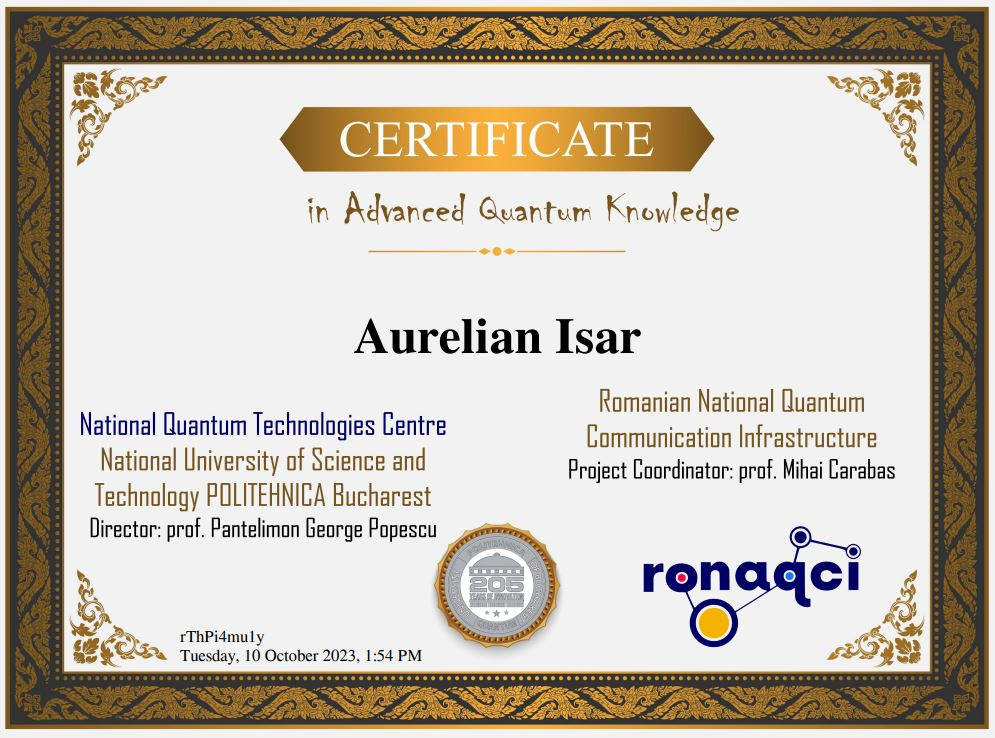
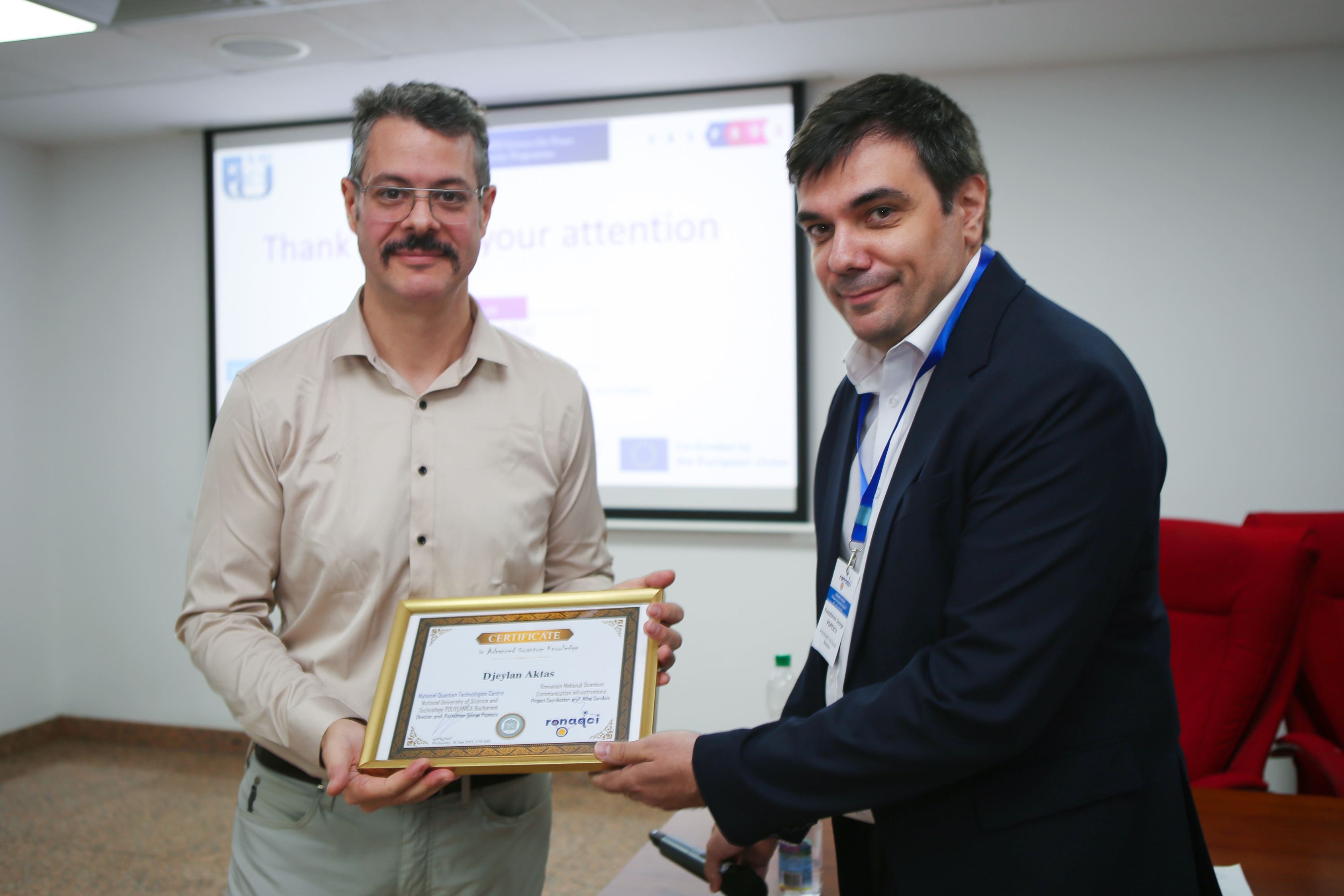
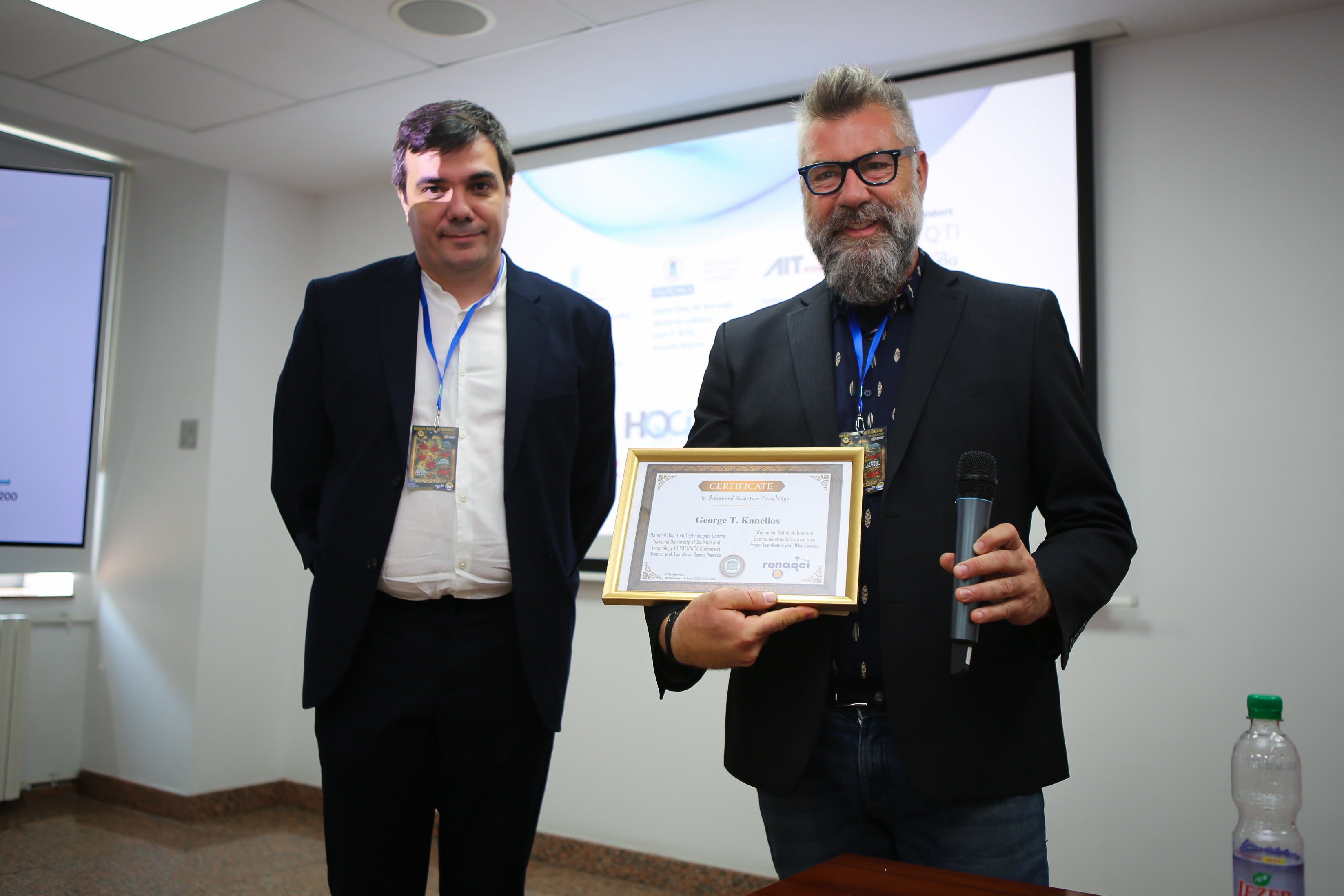
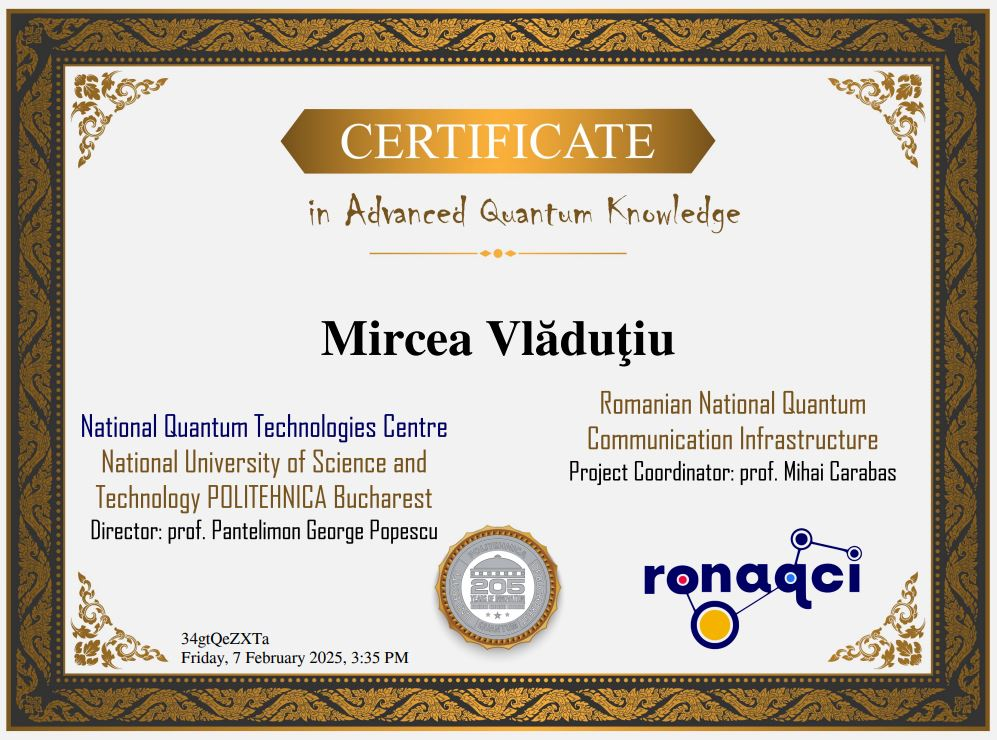
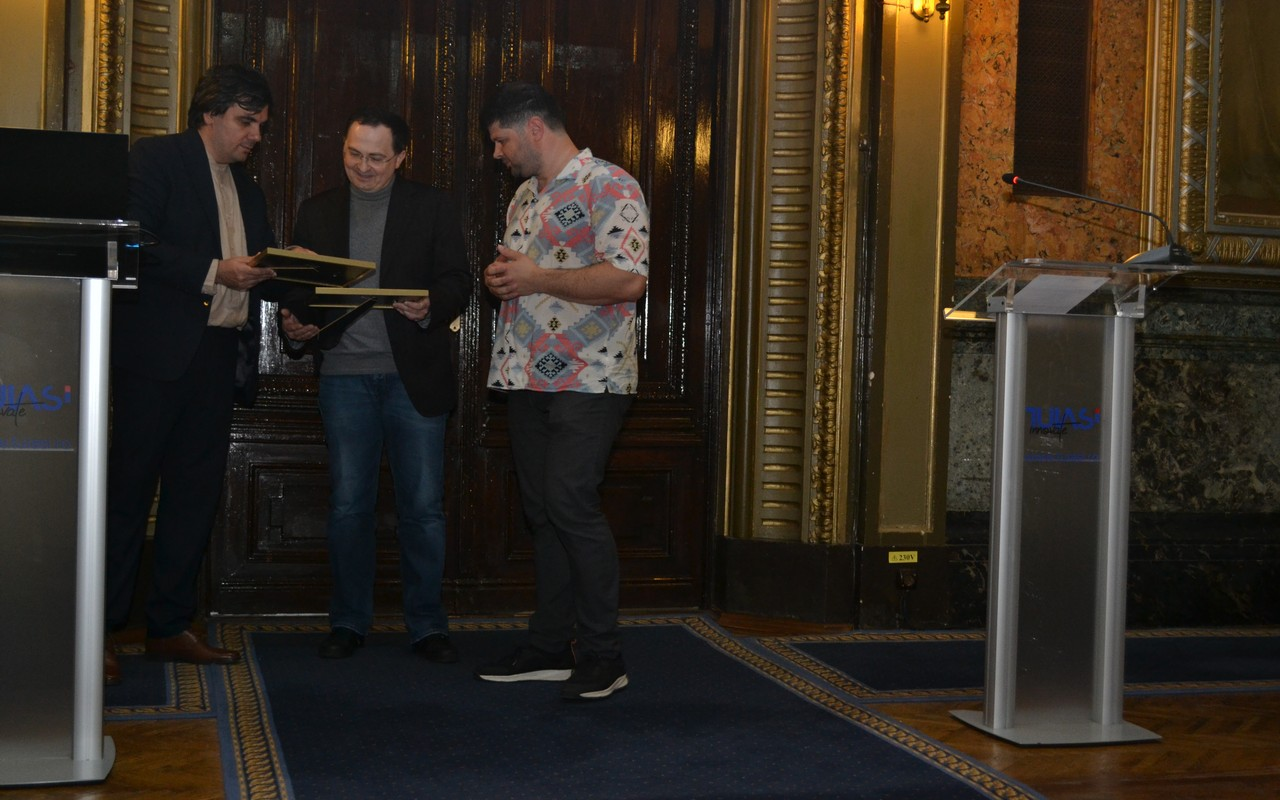
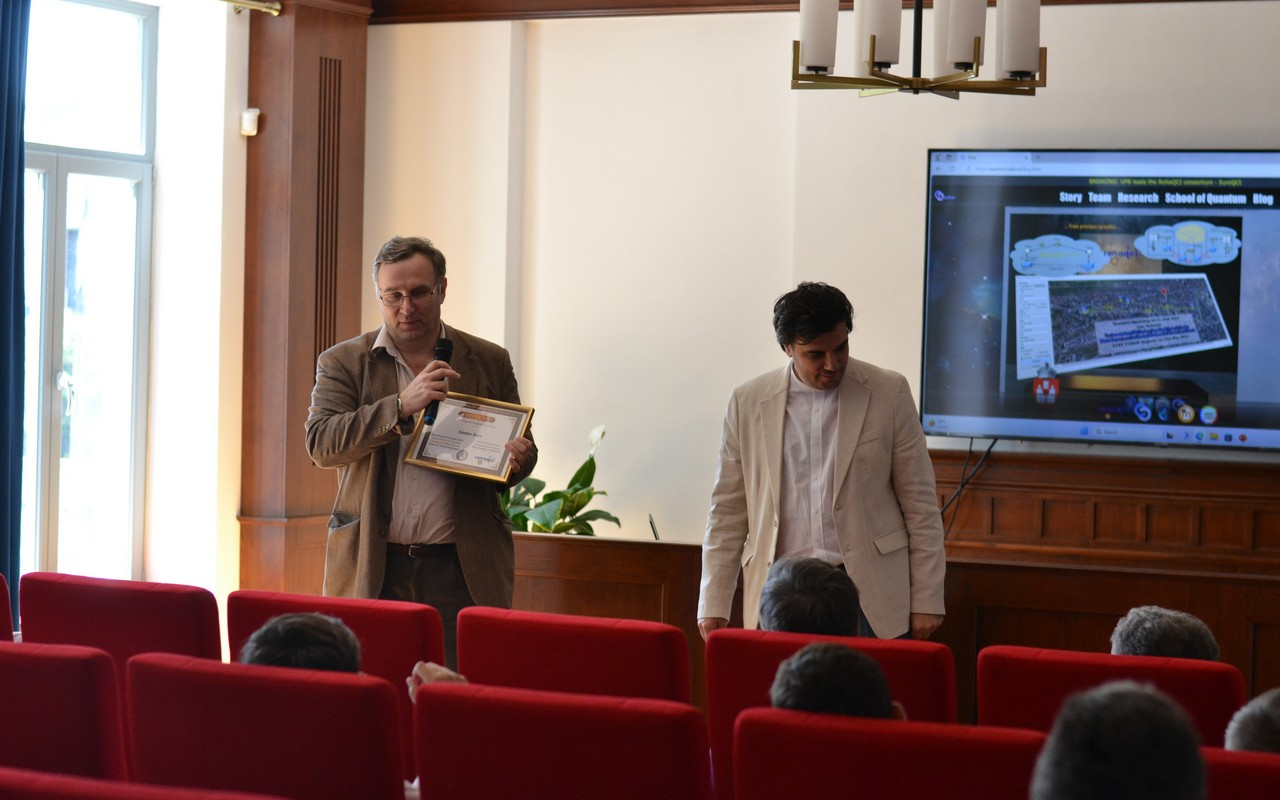
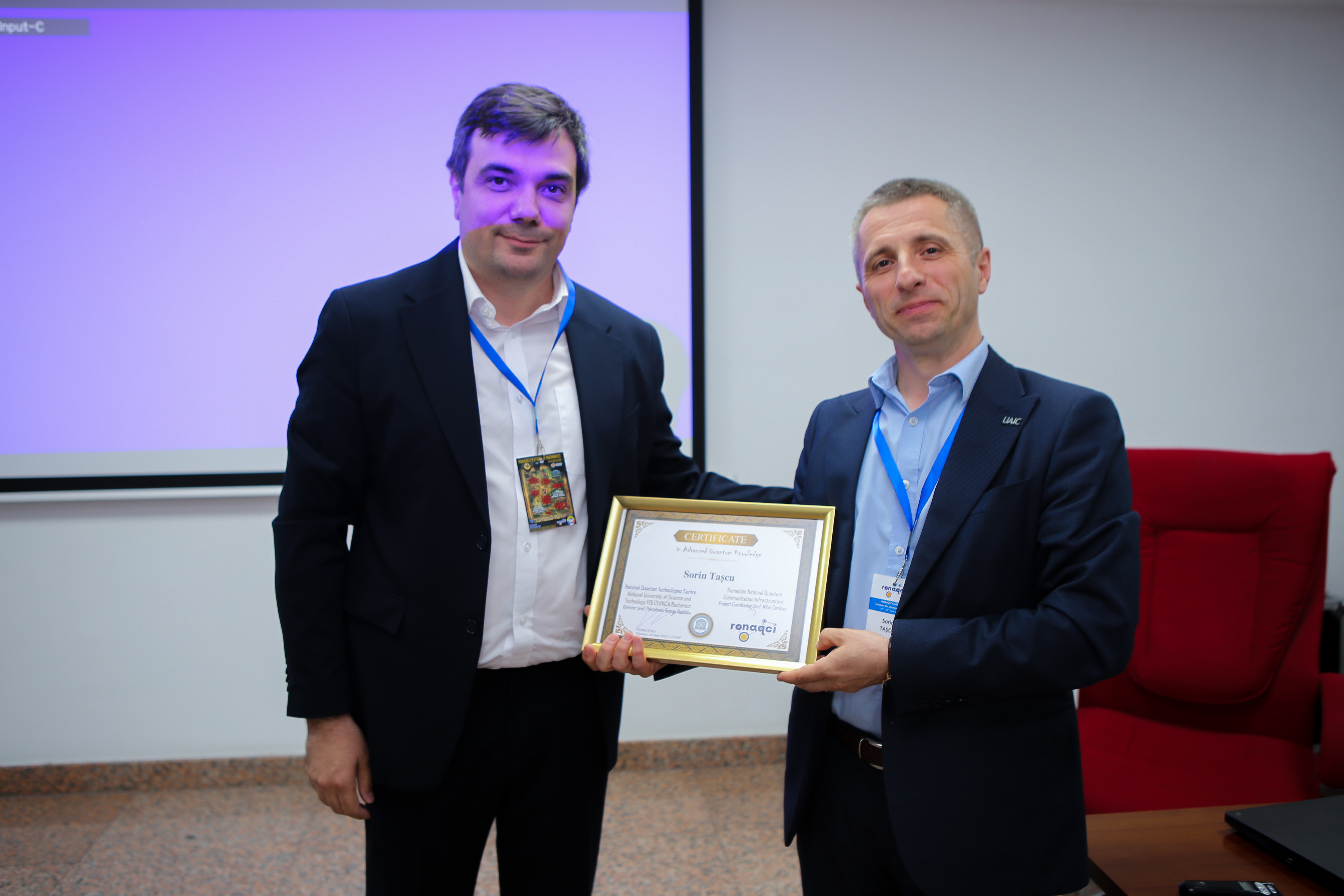
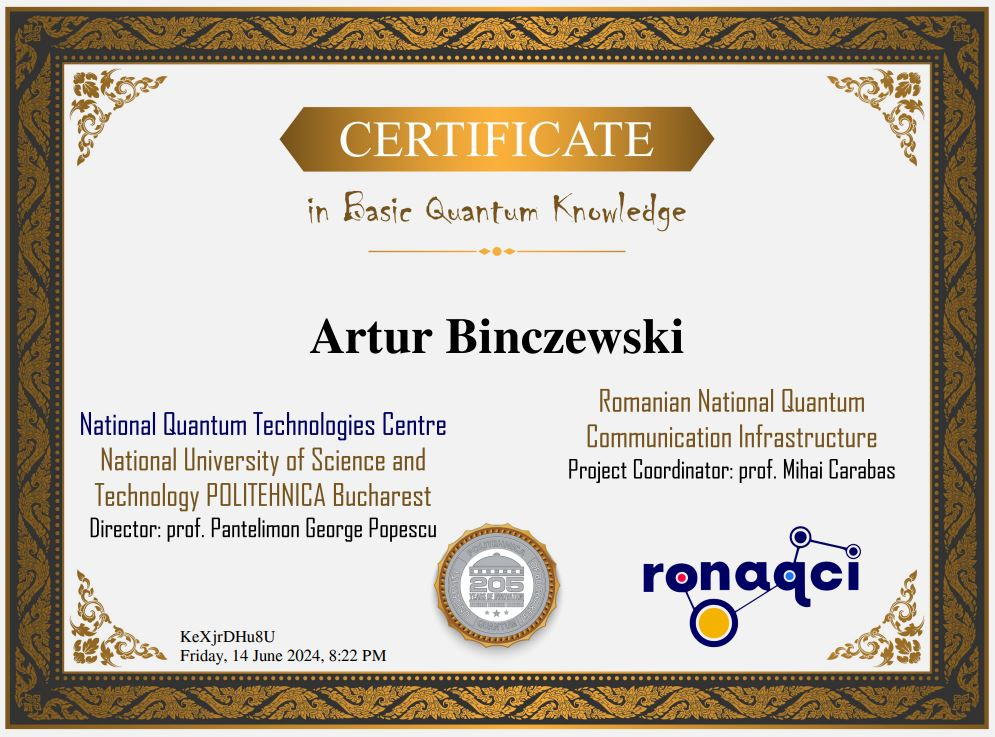
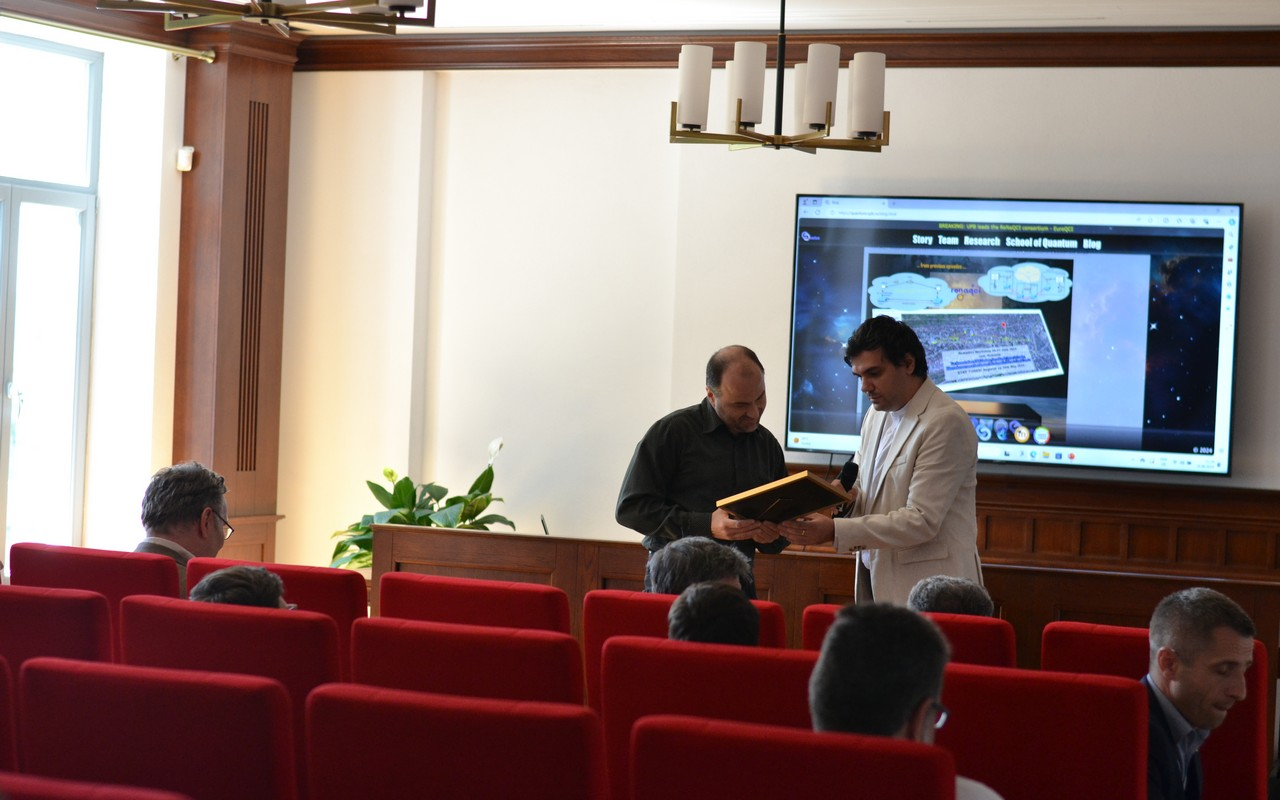
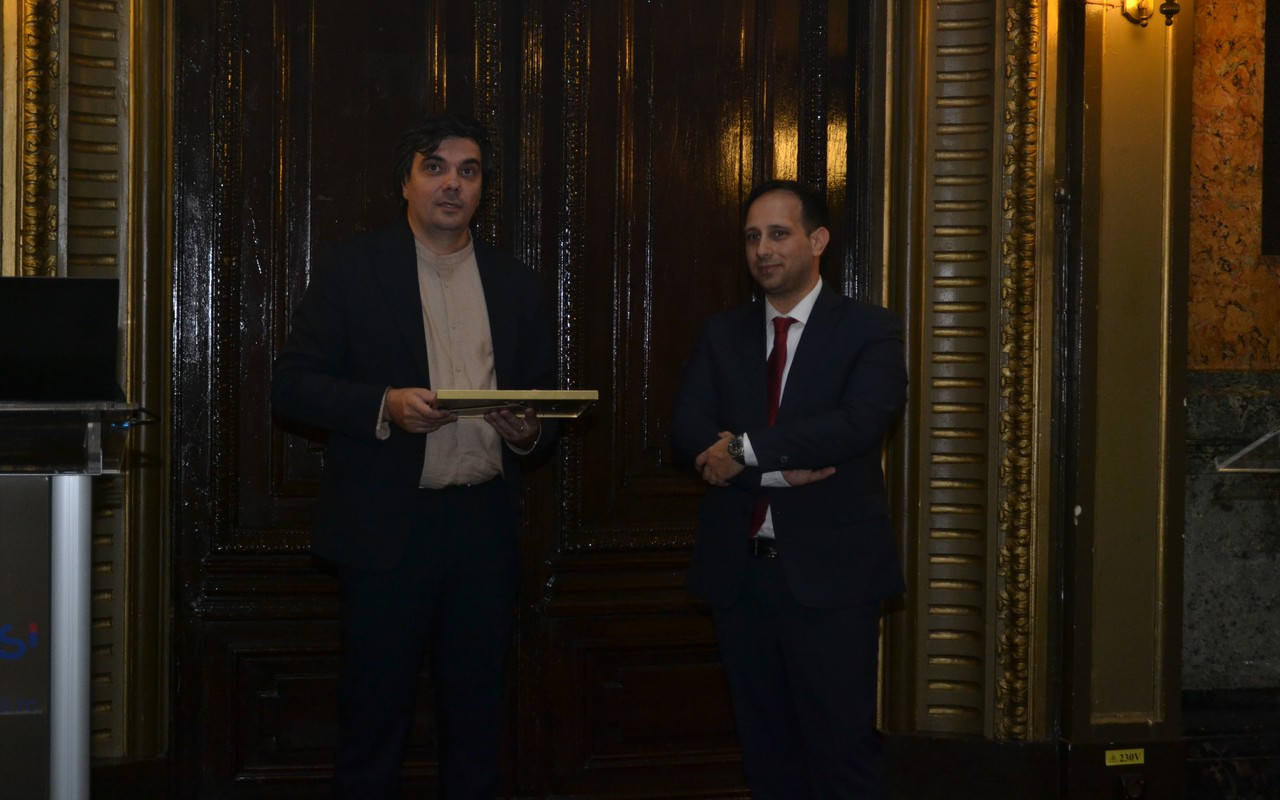

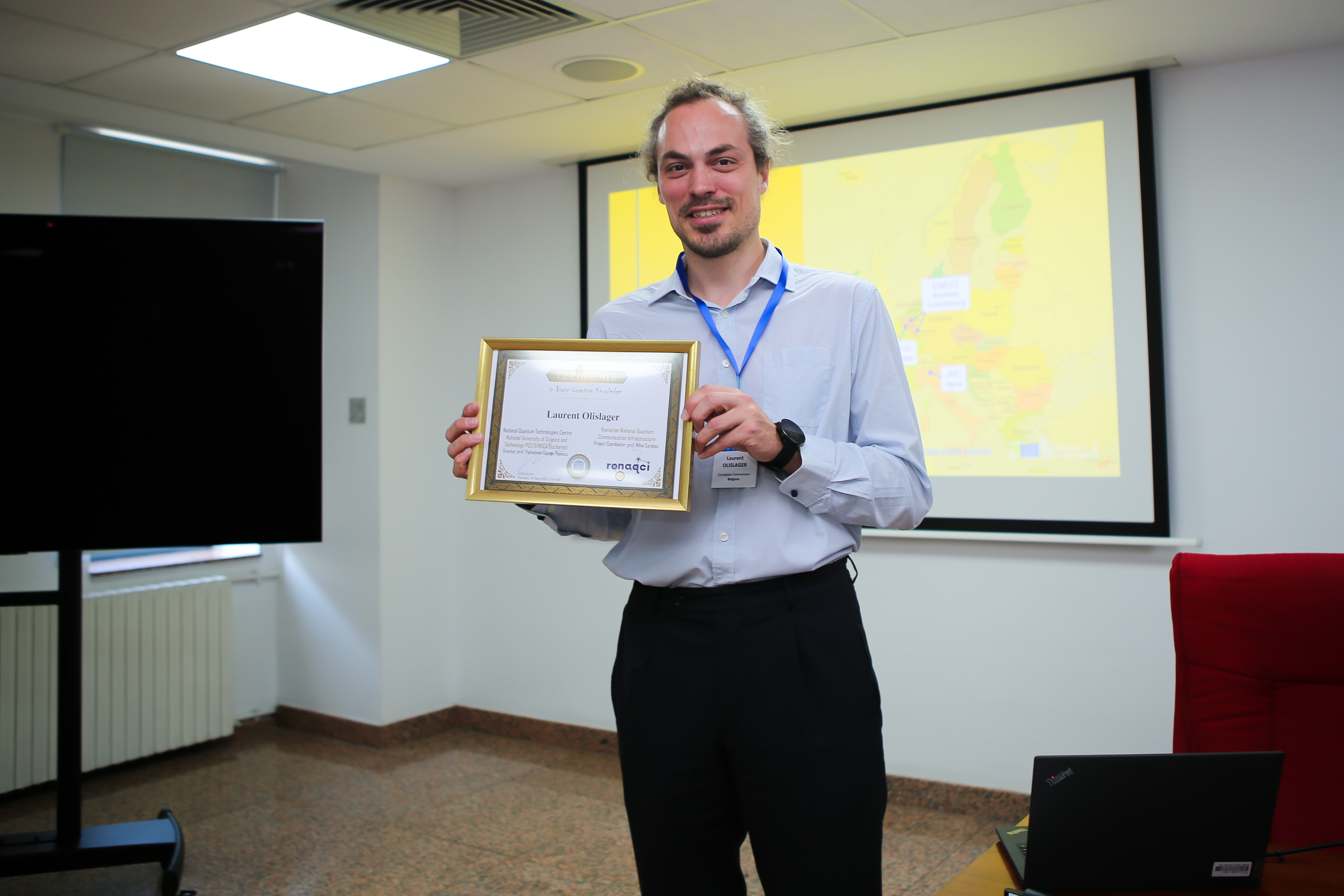
Certification in Basic Quantum Knowledge
Organized sessions
- POLITEHNICA Bucharest:
- Supervisors: Dr. Alin-Bogdan Popa, Bogdan-Călin Ciobanu, Lect. Dr. Ștefan-Dan Ciocîrlan
- Location: Splaiul Independentei 313 Bucharest, Main campus UNSTPB, building EF, room EF108
- Date and time: Thursday, 26 June 2025, 5pm-7:20pm
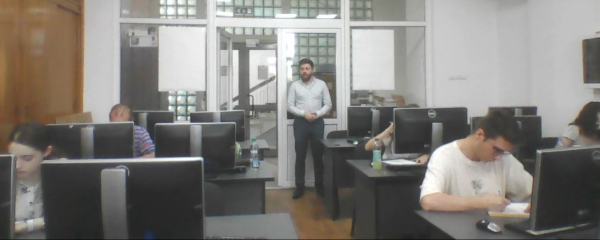

- University of Bucharest:
- Supervisors: Prof. Dr. Iulia Ghiu, Lect. Dr. Andreea Croitoru
- Location: Atomistilor 405, Magurele, 2nd floor, room D1-31
- Date and time: Thursday, 26 June 2025, 10am-11:30am
- IFIN-HH:
- Supervisors: Dr. Mirela-Elena Babalic, CS-II
- Location: National Library of Physics, Ground floor, Conference Room (Quantum HUB)
- Date and time: Thursday, 26 June 2025, 1pm-2:30pm
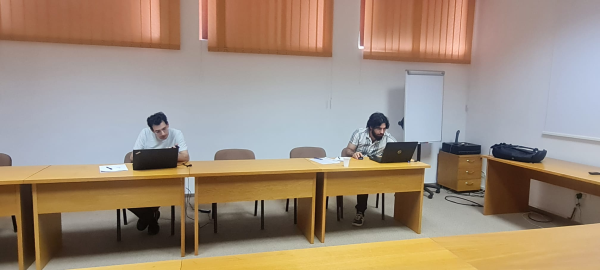
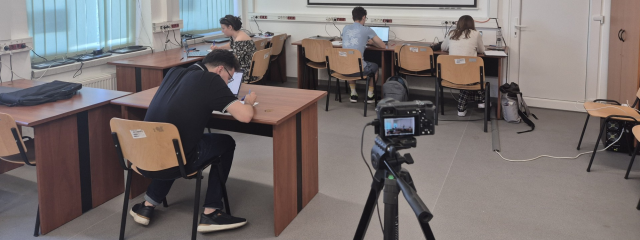
- Polytechnic University of Timisoara:
- Supervisors: Prof. Grad. Dr. Habil. Ing. Mihai Udrescu, Conf. Grad. Dr. Ing. Alexandru Iovanovici
- Location: 2, Vasile Parvan Blvd., Electro Building, Room B521, 300223, Timisoara
- Date and time: Monday, 30 June 2025, 12pm-1:30pm
Test details
- Physical test sessions in Quantum HUBs
- In-person surveillance and video recording
- Time available: 60 minutes
- 10 questions: 6x unique randomly generated problems and 4x random theory questions from question bank
- Pass threshold: 9/10
- Curriculum: the Basic Quantum Knowledge book
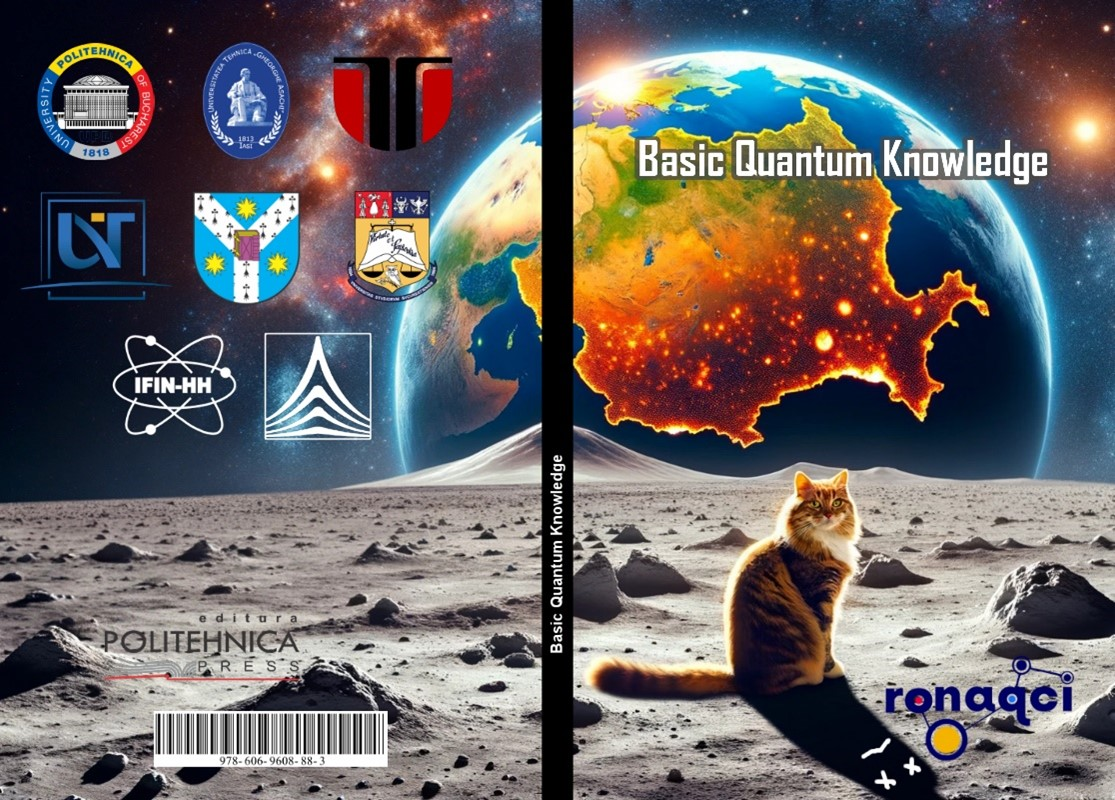
- Question example:
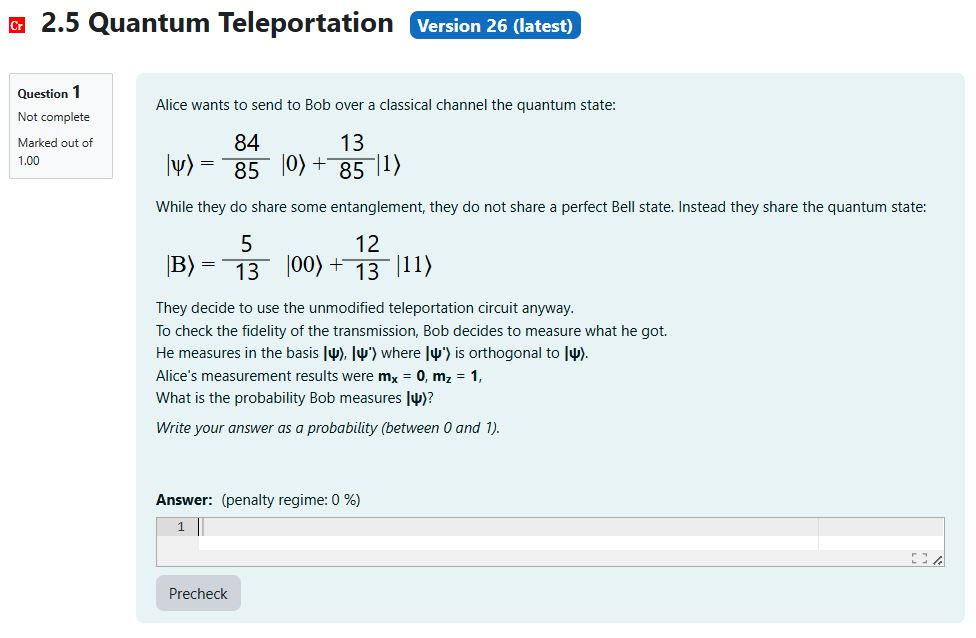
Certificates in Basic Quantum Knowledge - Examples
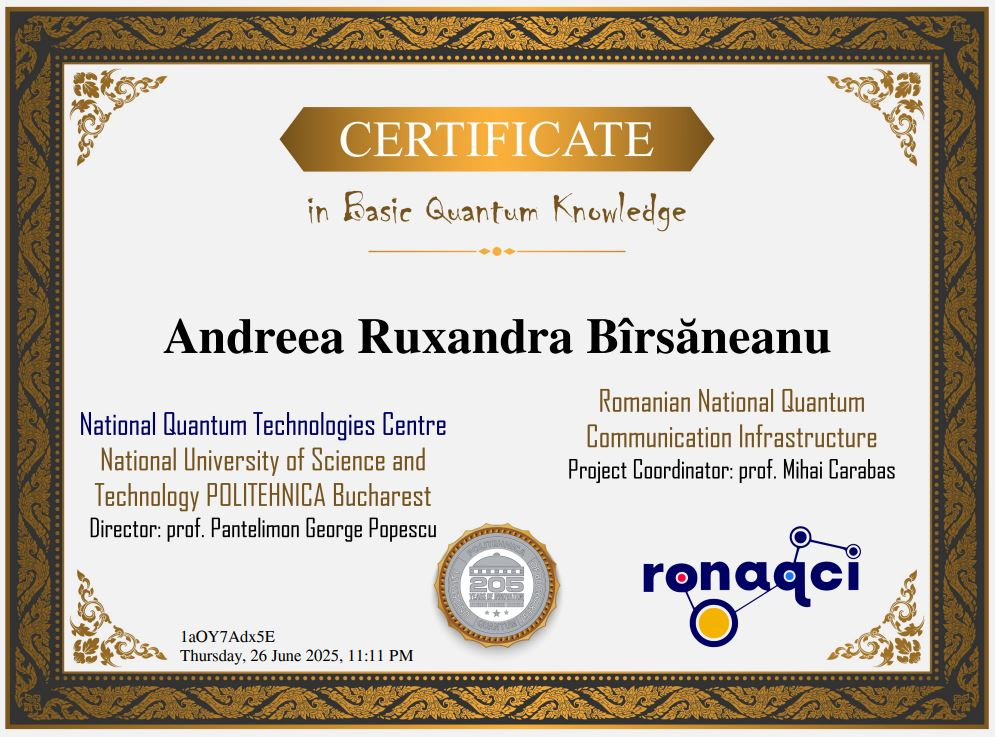
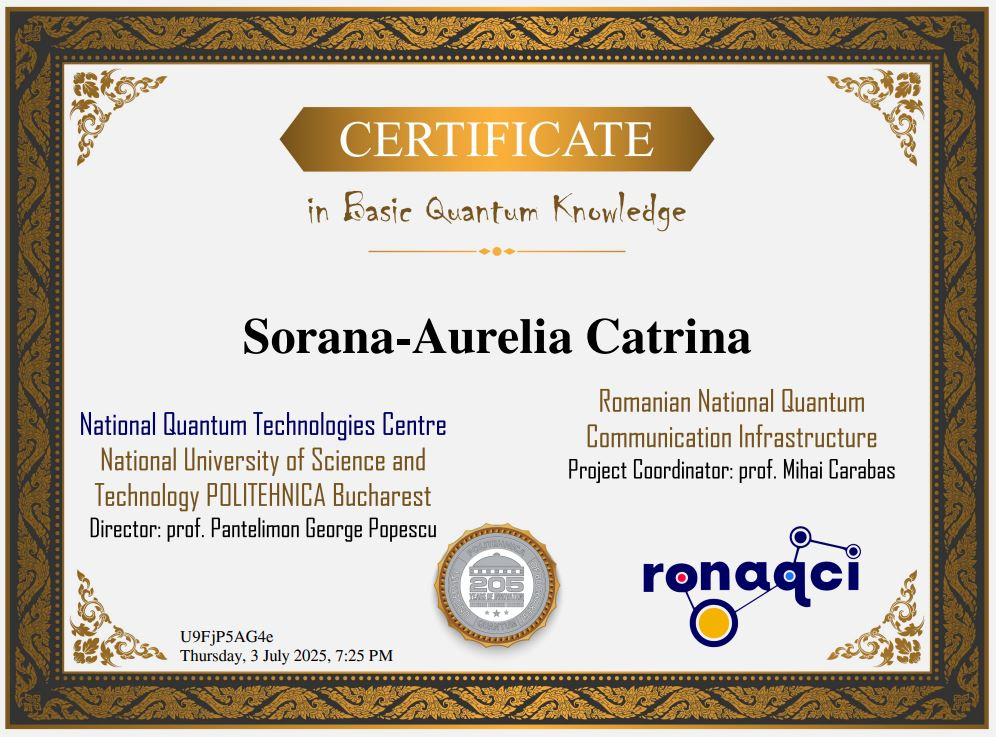
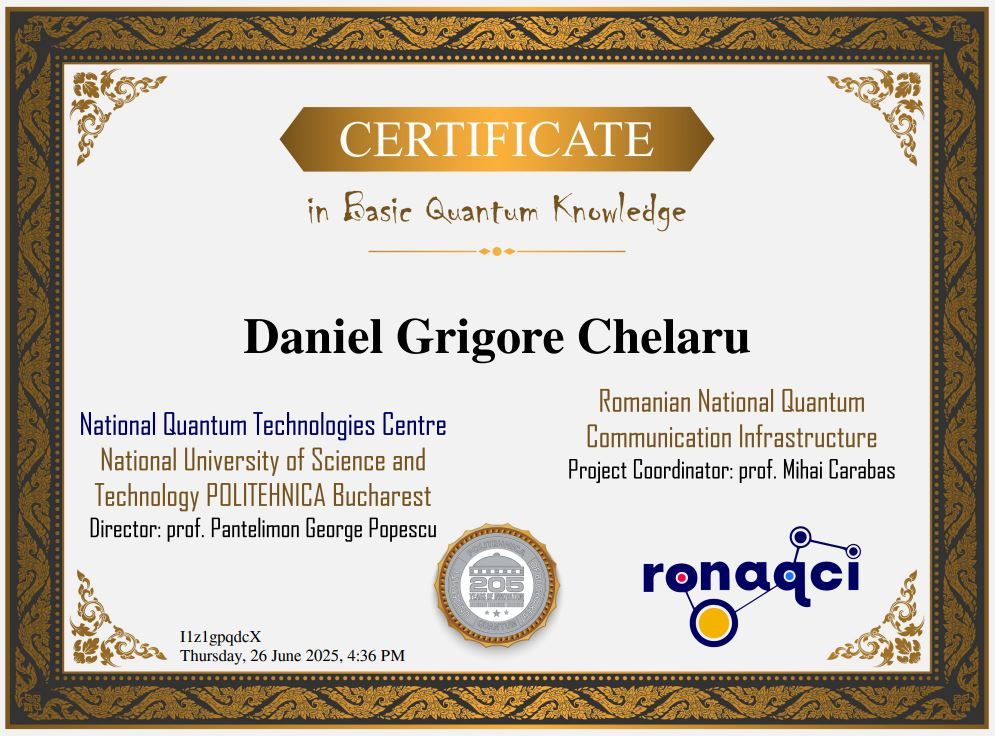
Certificate of Completion - Training in Basic Quantum Knowledge
Test details
- Online
- Time available: 60 minutes
- 10 questions: 5x unique randomly generated problems and 5x random theory questions from question bank
- Pass threshold: 8/10
- Curriculum: the Basic Quantum Knowledge book

- Question example:

Certificate of Completion in numbers:
900+
enrolled users with Diplomas of Participation
383
test attempts for Certificates of Completion
149
Certificates of Completion awarded
Certificate of Completion Examples
